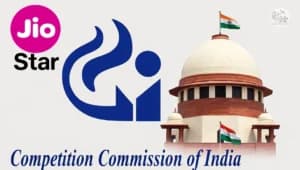The Madhya Pradesh High Court upheld the eviction of a son-in-law residing in his late wife's parental home. The court emphasized the necessity of ensuring a peaceful income source for senior citizens under the Maintenance and Welfare of Parents and Senior Citizens Act, 2007.
Case Background
The case involved appellant Dilip Marmat, who was married to the deceased daughter of the property owner, respondent No. 3. Following his wife's death in 2018, Marmat continued residing in his father-in-law's house, claiming he could not be evicted as he had contributed financially to the property’s construction.
The property, purchased in 2007 by the father-in-law, became a legal point of contention when Marmat argued that he had adverse possession due to his financial contribution. However, no legal agreement was presented to validate his claim.
The appellant argued that as a son-in-law, he does not fall under the definition of "children" under Section 2(a) of the Senior Citizens Act, 2007. He further claimed that he could not be categorized as a "relative" under Section 2(g) of the Act, thereby exempting him from its provisions.
Read Also:- NEET 2024: Madhya Pradesh HC Directs Inclusion of Vacant NRI PG Seats in General Quota
On the other hand, the respondent’s counsel argued that Section 23 of the Act, which deals with voiding property transfers in certain circumstances, was applicable. The father-in-law required the house to generate rental income for his and his ailing wife’s sustenance. The appellant, they contended, was not fulfilling his duty to care for the senior citizen and was instead causing distress.
"The definition of 'children' in Section 2(a) is not exhaustive. If the house was given to the daughter and the petitioner-appellant was her husband, after her death, he must be considered a part of the family and share responsibility for the senior citizen’s welfare." - High Court
The division bench, comprising Chief Justice Suresh Kumar Kait and Justice Vivek Jain, noted that under Section 23, even permissive or gratuitous transfers of property could be voided if the senior citizen demonstrated a need for its recovery.
Read Also:- Madhya Pradesh High Court Fines State Government for Alleged Violation of Land Acquisition Act
The court upheld the eviction order, observing that the senior citizen, a retired BHEL employee without a regular pension, required the property for financial stability. The judgment reinforced the Act’s intent to provide elderly citizens with effective legal remedies for financial and residential security.
"When the whole facts of the case are examined from said perspective, the senior citizen is in need of the property, and that need is bona fide and for peaceful purposes. Therefore, the petitioner, having failed to establish any rights over the property, is not entitled to continue living there." - Madhya Pradesh High Court
The High Court directed the appellant to vacate the premises within 30 days. Failure to comply would authorize the Station House Officer (SHO) to remove his belongings and hand over possession to the respondent.















